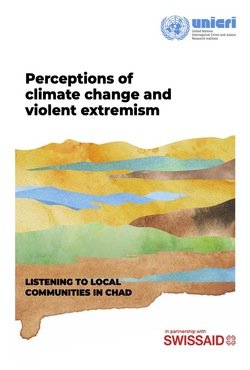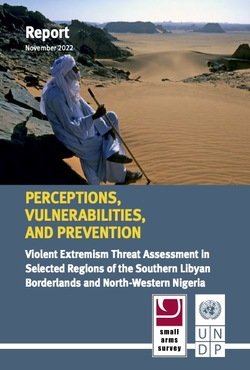By Manuela Brunero, Matthew Burnett Stuart, Olivier Guiryanan, Danielle Hull, Alice Robert
The report Perceptions of climate change and violent extremism: Listening to local communities in Chad has been produced by the United Nations Interregional Crime and Justice Research Institute (UNICRI) in partnership with SWISSAID. Building upon UNICRI’s previous research it explores the lived experiences of community members and their perceptions on the role climate change and degradation of natural resources have in exacerbating local conflicts, as well as the impact of climate change on violent extremist groups’ recruitment narratives. The research is based on primary data collected through more than 100 in-depth interviews across four provinces of Chad — Hadjer-Lamis, Lac, Logone Occidentale and Mandoul. The report specifically analyses the effects of climate change at two interconnected levels: the direct consequences as experienced on productive activities such as agriculture, herding, and fishing, and the indirect consequences affecting coping mechanisms, social cohesion, and recruitment and propaganda by violent extremist groups. In doing so, this initiative elevates the often unheard voices of those most vulnerable and directly affected by the dual interacting threats of climate change and violent extremism. This report represents a crucial preliminary step in laying the groundwork for further research and for the development of local initiatives to prevent and counter violent extremism that take into consideration overlapping climate and security challenges.
Torino, Italy: United Nations Interregional Crime and Justice Research Institute, 2022. 104p.




